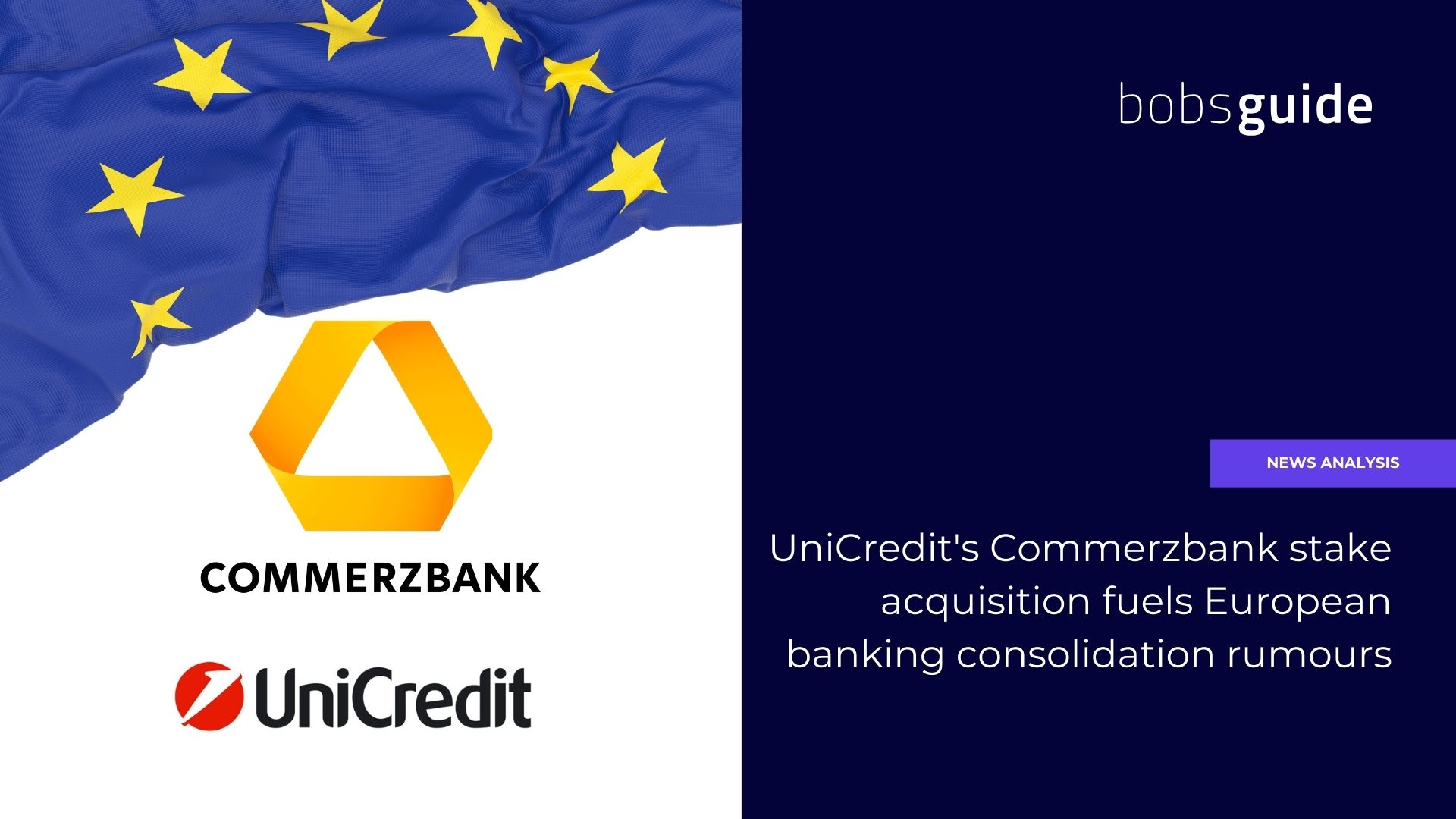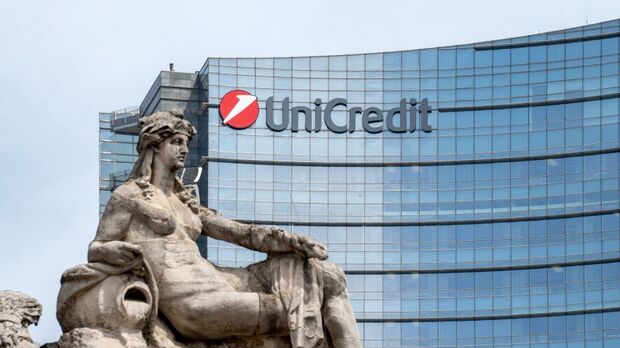UniCredit’s Commerzbank stake acquisition fuels European banking consolidation rumours
UniCredit’s 9% stake in Commerzbank has sparked fresh takeover speculation and renewed hopes for European banking consolidation, as Germany reduces its hold on the lender.
-
Marina Mouka
- September 11, 2024
- 5 minutes

Italy’s second-largest bank, UniCredit, has taken a significant step towards reshaping Europe’s banking landscape by acquiring a 9% stake in Commerzbank, Germany’s second-largest lender. This move, totalling €1.4bn, has sparked fresh speculation about a possible takeover and the long-anticipated consolidation of Europe’s fragmented banking sector.
The acquisition saw UniCredit purchasing 4.5% of the shares from the German government and a further 4.5% on the open market. This stake now makes UniCredit one of Commerzbank’s largest shareholders, second only to the German state, which reduced its holding to 12% from 16.5% following the sale. Commerzbank’s shares surged 17% in response to the news, reflecting investor optimism, while UniCredit saw its own shares climb by 1.95% in Milan.
In a statement following the deal, UniCredit declared it would “explore value-creating opportunities for all stakeholders in both banks” and file for regulatory approval to potentially increase its stake beyond 9.9%. This could indicate CEO Andrea Orcel’s long-term interest in a deeper partnership or even a full takeover of the German lender.
A surprise transaction
Commerzbank officials reportedly learned of UniCredit’s stake purchase through regulatory filings, with no prior formal approach from the Italian bank. However, insiders have suggested that Commerzbank is open to exploring the potential benefits of the move. “We will assess UniCredit’s plans with an open mind,” said a person familiar with Commerzbank’s internal discussions. Though the German bank had not engaged in talks before the transaction, its board remains committed to acting in the best interest of shareholders.
Berlin’s sale of Commerzbank shares forms part of its broader strategy to reduce the state’s involvement in the bank, a legacy of the 2009 bailout during the global financial crisis. While political resistance has traditionally blocked foreign takeovers of major German institutions like Commerzbank, the country’s Finance Ministry made it clear that UniCredit’s offer was “by far” the most competitive, emphasising the government’s commitment to “economic efficiency.”
Orcel’s ambitions and European banking consolidation
The deal rekindles discussions around the consolidation of European banks, an issue that has faced numerous hurdles in the past, including regulatory challenges and political concerns. However, with UniCredit now securing a foothold in Commerzbank, the stage may be set for larger moves. Andrea Orcel, UniCredit’s CEO and a veteran dealmaker, has previously indicated his intention to pursue mergers and acquisitions (M&A) to strengthen the bank’s position in Europe. “Most rumours” about potential deals are “true,” Orcel commented earlier this year, hinting at UniCredit’s active pursuit of M&A opportunities.
UniCredit’s acquisition of Commerzbank shares follows a similar strategy to its previous investment in Greece’s Alpha Bank, where it acquired a stake to gain insight into the lender while considering a more significant role. Should UniCredit move forward with a full takeover of Commerzbank, it could create a powerful banking entity in Germany, particularly if integrated with UniCredit’s Munich-based subsidiary, HypoVereinsbank. The combined entity would present a formidable challenge to Deutsche Bank, Germany’s largest financial institution, by expanding UniCredit’s reach across the country.

Leadership changes at Commerzbank
UniCredit’s purchase comes at a pivotal time for Commerzbank, with CEO Manfred Knof announcing that he will not seek another term after his contract expires in December 2025. Under Knof’s leadership, Commerzbank has focused on remaining independent, steering clear of major merger discussions. However, his impending departure may signal a shift in strategy, particularly as the bank looks for new leadership.
While Knof has been committed to maintaining Commerzbank’s autonomy, Orcel’s track record suggests a more aggressive approach to consolidation. Analysts have noted that a full acquisition of Commerzbank could make “financial and strategic sense” for UniCredit, particularly given the limited overlap between the two banks’ operations within Germany. HypoVereinsbank’s primary market focus is Bavaria and the Hamburg region, while Commerzbank’s reach extends more broadly across the country.
A game-changer for European banking?
UniCredit’s stake purchase underscores a broader appetite for consolidation within the Eurozone, a region where cross-border bank mergers have long been discussed but seldom executed. Regulatory complexities, political concerns, and cultural differences have often stymied such deals in the past. However, Orcel’s determined push could change that, with UniCredit emerging as a leading force in Europe’s banking sector.
Germany, traditionally cautious about foreign acquisitions of its domestic banks, may find it harder to resist given the size of the offer and the economic rationale. Some analysts have also pointed out that should UniCredit make a full bid, Deutsche Bank may re-enter the fray to prevent the creation of a stronger domestic rival, even though it walked away from similar merger talks in 2019 due to an overlapping client base.
As European regulators and bank executives continue to advocate for consolidation to strengthen the region’s financial system, UniCredit’s latest move may prove to be the catalyst that transforms the long-discussed goal into reality.
In the coming months, all eyes will be on whether UniCredit and Commerzbank engage in more formal discussions and what implications this could have for Europe’s banking sector.

 Bobsguide is a
Bobsguide is a